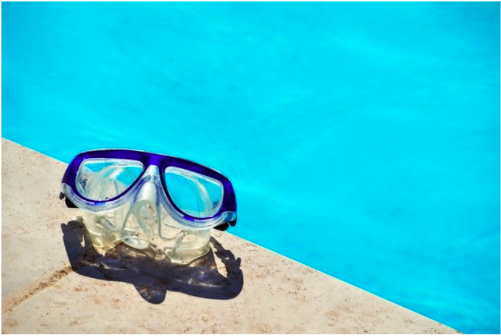
The swimming season has come to an end, but the responsibilities of owning a pool last year-round. With winter swiftly approaching, it’s important that we take the time to talk about how to winterize your inground or above-ground pool in Jackson MS.
Winterizing your pool not only ensures that your pool will continue to function properly post-winter, but also it prevents the buildup of algae, corrosion and unsanitary pool water.
Below we cover the seven leading examples of how you can protect your pool from the harsh off-season weather!
1. Add Post-Cleaning Chemicals
After you have done your routine pool cleaning in preparation for the off-season, you should add enzymes and chlorine. The enzymes break down any contaminants that leak into your pool while not in use, while the chlorine keeps your water sparkling clean.
Once the spring season arrives, add more chlorine by lifting the corner of your pool cover. These practices will also prevent the loathed waterline ring that can form around your pool.
2. Prevent A Damaging Freeze
Since your pool’s pipes will be the first to bear the brunt of the cold, it’s important to drain water from the pump, filter and pool heater. Removing excess pool water will dry out the system and prevent any leftover water from freezing and expanding in your pipes.
In addition, since water freezes in the wintertime as opposed to evaporates, it’s important to reduce your pool’s water level 1 to 6 inches below the skimmer. This will prevent cracking in your pool’s tiles due to expansion.
3. Cover the Pool Properly
Next, it’s crucial that your pool cover is dry and fits tightly over your pool. This will prevent any of the water that has accumulated on top from freezing and eventually melting back into your pool.
Remember that covering your pool is not a one-and-done job. Throughout winter, you’ll need to clear your pool cover from dirt, leaves or branches. Otherwise, these will eventually seep into your pool water.
4. Add Algaecide Mid-Season
Since your pool water will be stagnant for a few months, it’s worth adding a mid-winter algaecide to keep algae at bay. Once added, the pump will circulate the additive throughout the pool for at least 24 hours. This will make your pool’s spring cleaning much easier!
5. Routine Checks
To maintain a healthy pool, continue to check the water level once a month to confirm there are no leaks. For above ground pools, periodically check that your pool cover remains tight and is not slouching to the side. You can use an air pillow to protect it from weather damage and to prevent debris from reaching the inside.
6. Track the Weather
Since weather inevitably fluctuates, you may need to adjust your cleaning methods, such as increasing or decreasing the amount of pool chemicals you use. For example, if there has been an unexpected rain shower that has diluted your pool water, you may want to add extra chemicals to balance it out.
7. Open Sooner than Later
Last but not least, the longer your pool goes unused, the higher the likelihood that algae and bacteria will grow. So don’t wait too long to remove your pool cover! Get a head start and begin your summertime prep early. This will save you precious time once the hot summer days arrive!
Have questions or need assistance with winterizing your pool? Contact Paradise Pools today to ensure your pool is clean and ready-to-go for those long awaited summer months!

 CALL US TODAY!
CALL US TODAY!



